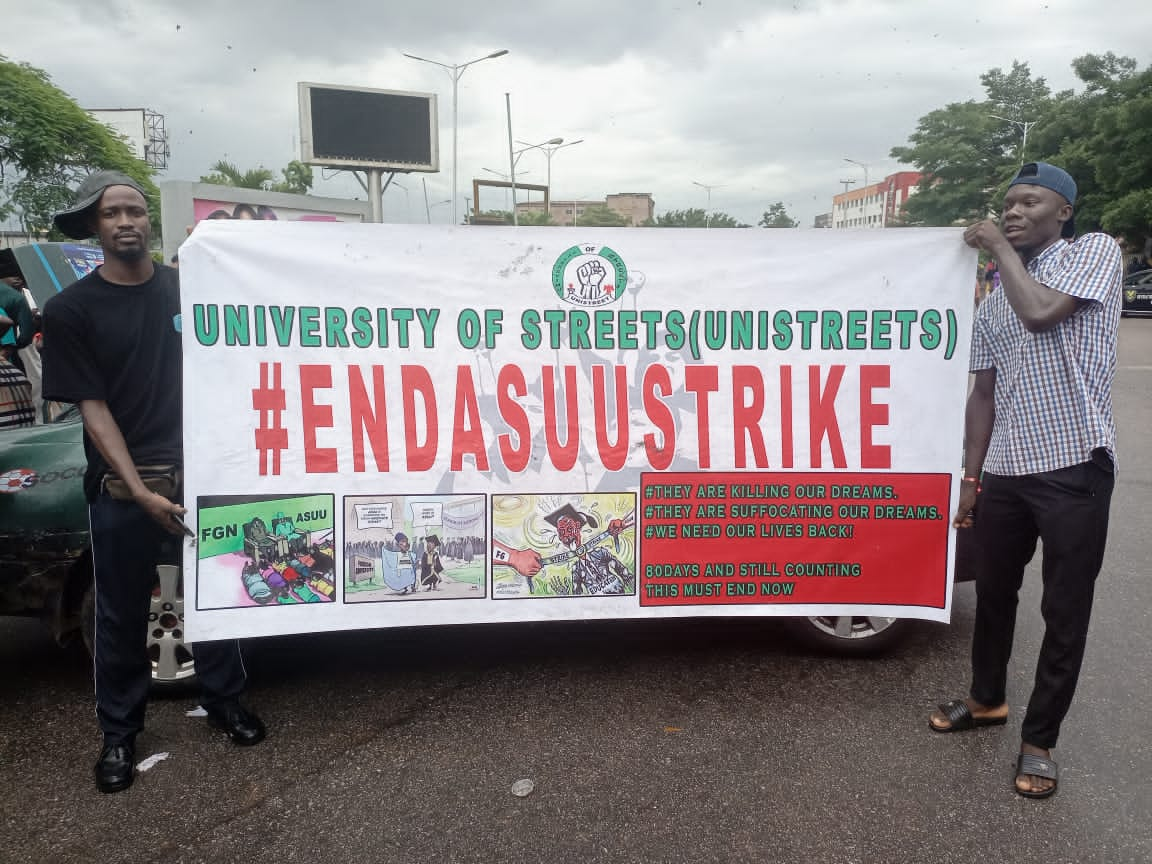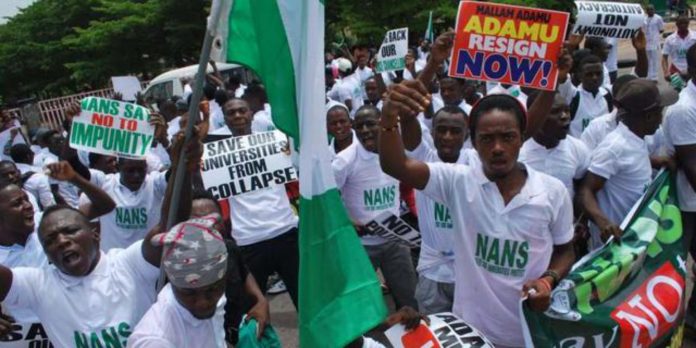The strike action of the Academic Staff Union of Universities (ASUU) has now lasted for seven months. Unfortunately, there is no end in sight as the government has shown absolute contempt for the strikers and total disregard for the unpleasant impact of the closedown of academic activities in our public Universities on students and their families.
This, however, has become perhaps the most talked about issue in the press, on social media, and in every household as almost all Nigerian families are affected directly or indirectly. What becomes the issue from this is not just the discourse in the public. A major question is how informed is the public. Is there a clear popular perspective of the dangers the failure of this strike would pose for our education sector if it is allowed to fail? These and many questions are what seek answers.
The government has insisted on implementing IPPIS as the payment system in the University system while ASUU had developed and proposed UTAS as an alternative. UTAS has been tested and proven to be more effective than IPPIS by even government agencies.
The danger inherent in the IPPIS system is that it tampers with the autonomy of the University system, negating one of the key attributes of universities across the world. IPPIS as a foreign-imposed system has failed woefully as we can see cases of misappropriation and embezzlement of N109 billion by Ahmed Idris, who was relieved of his duties as Accountant General of the Federation, just a few months back.
Why and how the government is finding it difficult to accept UTAS should be questioned by the public. Is the government in doubt of the credibility of the working conditions of ASUU members and thinks they couldn’t have come up with a good solution from the under-funded Universities, even when its own agencies have confirmed the veracity of the payment system?
There is a demand for improvement in the university teachers’ working conditions, which includes increment in salary, provision of an academic enabling environment, and improvement in infrastructure, among many other things that are the barest minimum that any 21st-century academic environment should have.
Unfortunately, the public is less informed of these because the mainstream media has failed in fairly interrogating and reporting the contending issues between ASUU and Federal Government. We must come to the realization that good working conditions for lecturers and workers in any sector are important. Workers are not slaves. The lecturers are merely asking that the right thing should be done.
The same ruling class which has failed to fund the education sector would come out to address graduates of our universities as ‘unemployable and half baked’. How can we have well-equipped graduates who can rise up to the challenges of the world of work, when engineering students, for example, see instruments only in textbooks or when their lecturers would rather spend the hours that should be concentrated on teaching for private businesses because their salaries are not enough for sustenance?
To rub salt on the festering sore, the government of President Buhari met with ASUU and reached a Memorandum of Action in 2020 towards implementation of the 2009 collective agreement, now wants the 2009 agreement reconsidered!
Government is continuous, and Buhari must uphold the collective agreements its predecessors had with Labour Unions. The government has failed to honor the agreements it willingly had with ASUU in 2020 and after several efforts known to trade unions in bringing a reasonable government to honor the agreement, ASUU could not but go for the last option- industrial action!
In the course of this seven months strike, two different committees of supposedly trusted personalities of government had been set up by the government to meet and reach an agreement with ASUU. The recommendations of these committees were disregarded.
Rather than honoring the reached agreements, the salaries of lecturers have been withheld since February 2022 and the worst of the story is the shameless decision of the government to use the National Industrial Court to victimize ASUU members, after the instrument of hunger couldn’t break their patriotic resolve.
The most dangerous part is that the public is yet to see the dangers a successful crush of ASUU would mean to not only the education sector but progressive Unionism in Nigeria. As the public primary and secondary schools have been reduced to nothing with the Unions of their staff crushed, so would be the fate of public tertiary institutions in Nigeria if we fail to support ASUU in winning this battle.
Fundamentally, it is high time the Labour Centers, NLC, and TUC, declare and embark on a nationwide strike in solidarity with ASUU. This is the best time to act.
Despite the reactionary stench in the National Association of Nigerian Students over the years, the students’ movement has been showing the way to go in this struggle over the last four months, initiating what its activists described as a University of the Streets, with several “faculties” of protest.

Thousands of students took to the streets across various university towns in May, calling on the federal government to hearken to the demands of ASUU. This was on the heels of the formation of the Fund Education Coalition in April, by several students’ unions, the Take It Back (Students Wing), the Alliance of Nigerian Students against Neoliberal Attacks (ANSA), and the Socialist Workers & Youth League activists on campuses.
The students also joined the protests organized by the Nigeria Labour Congress (NLC) in July. And by August, the NANS Zone D (covering the Southwest) initiated mobilization for a new wave of students’ mass protests demanding that the federal government must #EndASUUStrike by upholding the collective agreements it had reached with the union.
Some credible student activists emerged in the new leadership of NANS that emerged at its National Convention in the last week of August. This broadened the scope of the mobilization, making it nationwide.
As the ASUU strike entered its seventh month in the second week of September, the students took drastic action. They organized demonstrations across the country. In Lagos, they blocked the strategic Lagos-Ibadan expressway. The demonstrations continued for a week, during which they picketed the Murtala Mohammed International Airport, which politicians frequently use to junket across the country and globally.
The students should not be left alone on the streets. We need mass action to force the government to do the needful. Pro-labor civil society organizations and mass democratic organizations of the people should converge with the students’ movement at this crucial stage of the struggle with protests and solidarity strikes. Together, we can build active public support to thwart the deliberate plans of the ruling class to destroy public education in Nigeria.
ASUU and its activists also have to deepen the conversation with radical and revolutionary student organizations, civil society organizations, and trade unions and join, indeed give leadership to mass action on the streets.
ASUU’s demands are legitimate and progressive. They must be defended by all. The ASUU struggle is our collective struggle, to ensure that children of working people can access quality public tertiary education.
In the final analysis, the national education crisis further proves that we need system change. The current neoliberal, capitalist system is based on the profit motive. We need to rebuild our society on the basis of a system that puts the people’s material and social needs, including education and healthcare, before the profit maximization of a handful of elites, and their state which defends this oppressive order.
by Las SONEYE









